Regulatory shifts, innovation and market challenges discussed at ITTC61
28 October 2025, Panama City
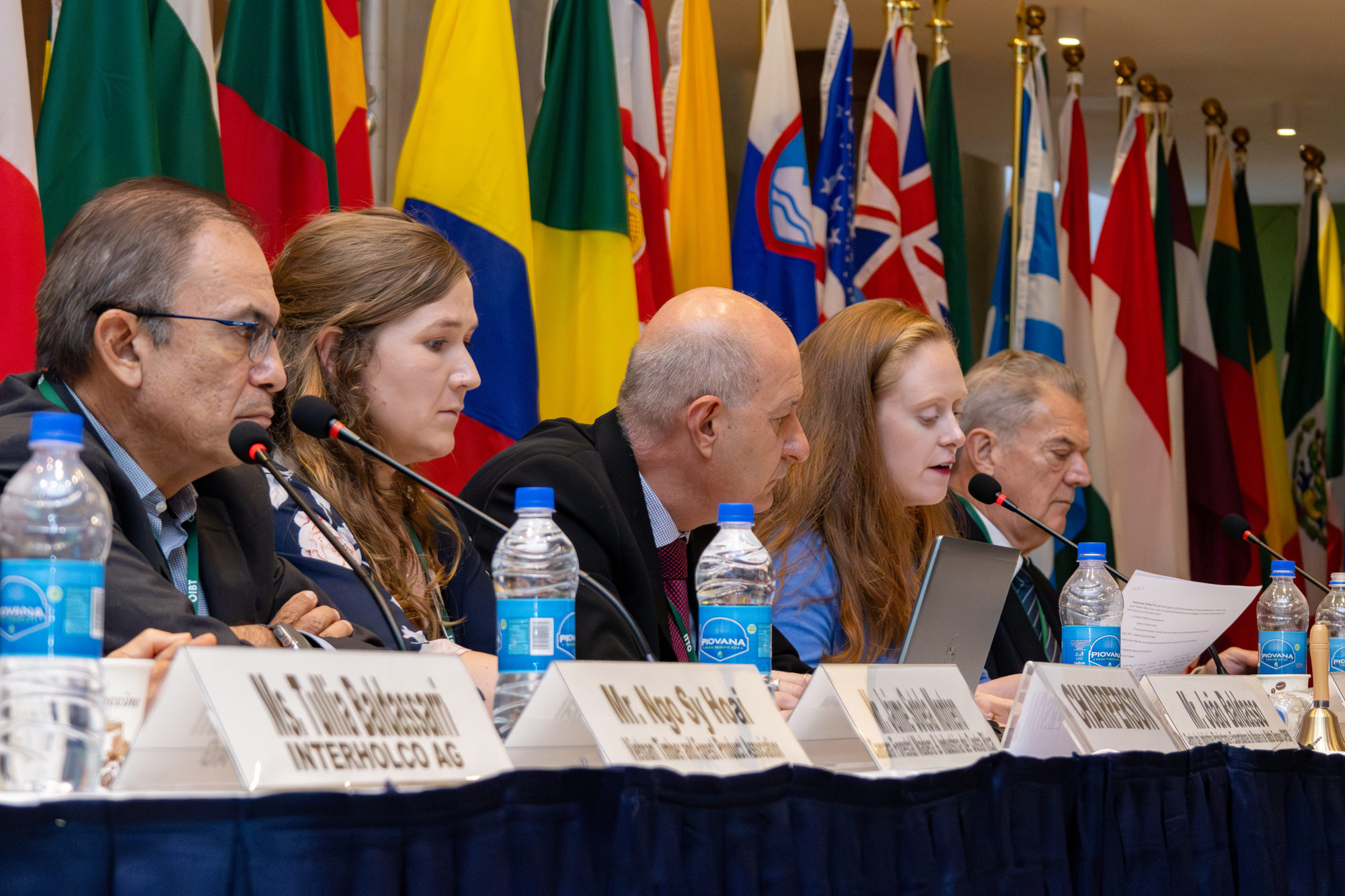
TAG underscored mounting concerns over trade volatility, regulatory uncertainty and escalating compliance costs. © ITTO
As part of the 61st session of the International Tropical Timber Council (ITTC61), the Trade Advisory Group (TAG), an open-ended group that advises the Council on matters related to ITTO’s work that are of particular relevance to trade and industry, convened its annual Market Discussion on 28 October 2025 under the theme “The Timber Industry Reimagined: Lessons from Market Struggles and Sustainability Efforts”. The session examined emerging market trends, regulatory developments and private-sector responses shaping the global tropical timber trade.
Speakers from Latin America, Africa, and Asia highlighted the implications of evolving trade regulations and shared country- and industry-level experiences in forest governance, plantation development, value-added processing, and community-based forest management.
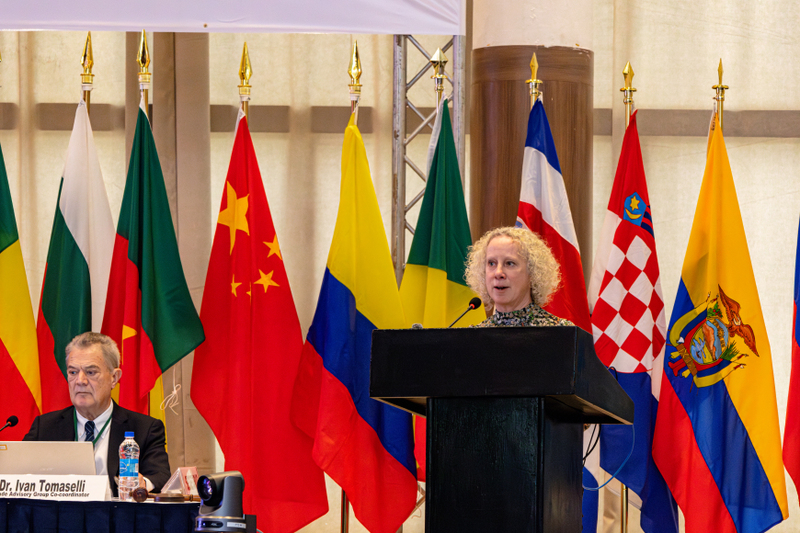
Global market shifts and regulatory landscape
Emily Fripp delivered a keynote speech that provided an overview of key supply and demand trends. She noted that global roundwood production climbed to a record 4 billion cubic meters, yet production from natural forests continues to decline as plantations expand, reflecting a changing supply base.
Markets in Europe are contracting while demand for traceability and sustainability assurances continues to rise. Ghana’s recent issuance of its first FLEGT (Forest Law Enforcement, Governance and Trade) license demonstrates that enhanced forest governance can help meet these demands.
The EU Deforestation-Free Products Regulation (EUDR), which took effect in June 2023 and requires compliance from December 2025, introduces more stringent requirements than the EU Timber Regulation (EUTR), broadening its scope to other commodities, including palm oil and soy. Fripp emphasized that staggered enforcement timelines, transitional provisions and data requirements present implementation challenges—particularly for small and medium-sized enterprises (SMEs). She encouraged deeper engagement with the Broader Market Recognition Coalition (BMRC) to help reduce compliance burdens and improve recognition of strong national systems.
Growing global attention on biodiversity and climate commitments is opening new opportunities for carbon and biodiversity credits, although clear monitoring systems and public-private collaboration will be essential.
Regional perspectives
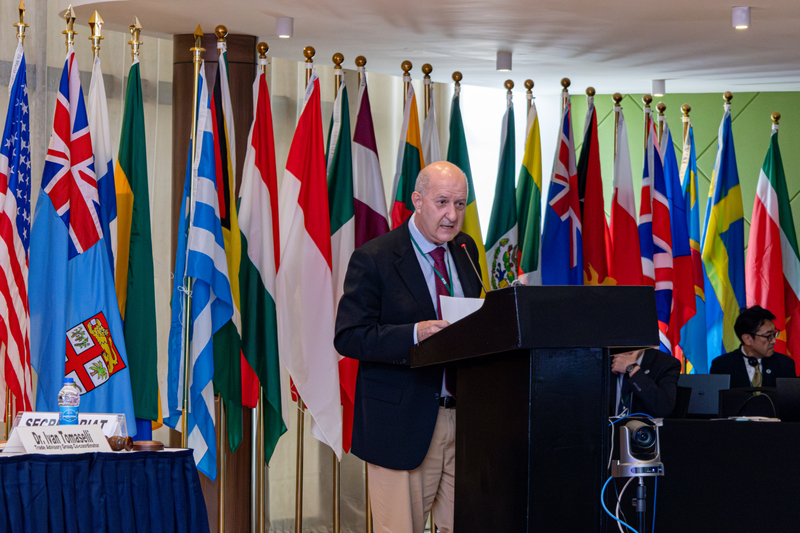
Latin America
With 19 million hectares of plantations, more than half in Brazil, the region is expanding sustainable timber supply for pulp, plywood, furniture and construction. Brazil’s forest exports totalled USD 17 billion in 2024, with potential to reach USD 25–35 billion in the coming years. However, infrastructure improvements and substantial investment (estimated at USD 220 billion) will be needed to strengthen competitiveness and create jobs.
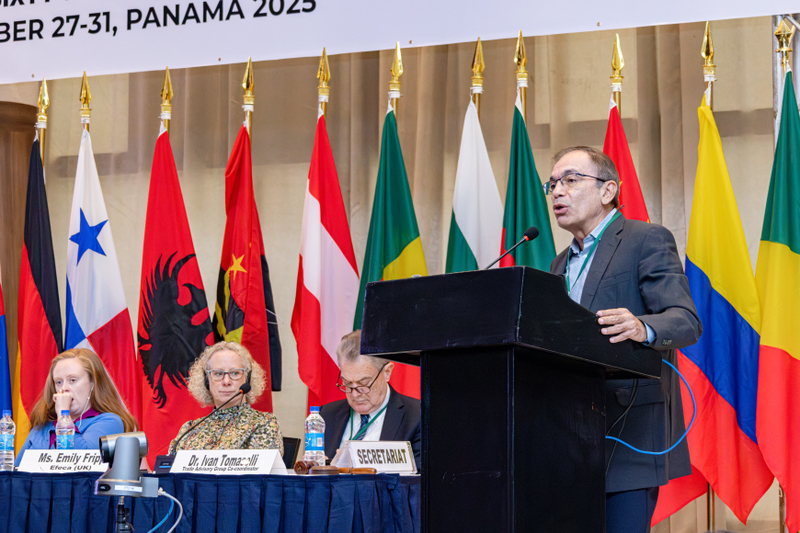
Central America
Costa Rica has halted deforestation in part through payments for environmental services and is now developing a national timber construction code and public procurement policies to promote domestic wood use. Speakers emphasized the need for innovation, value addition and digitalization, supported through strong public-private partnerships.
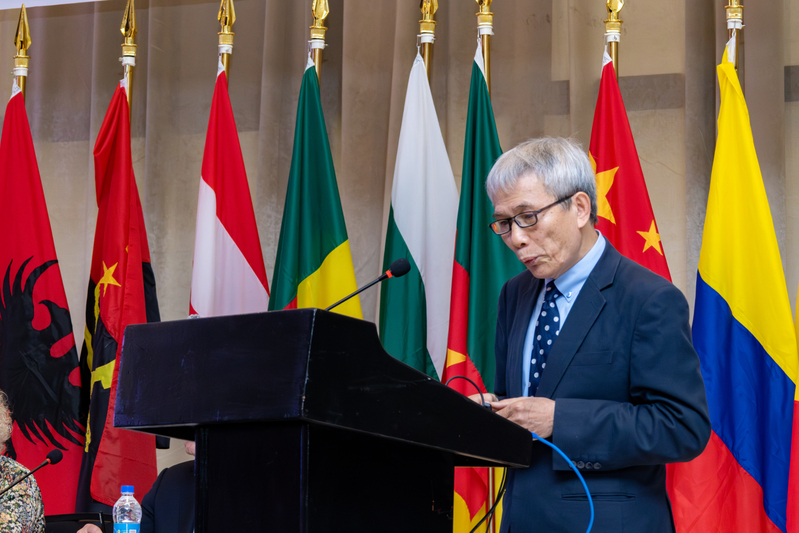
Southeast Asia
Viet Nam’s wood products exports reached USD 16.3 billion in 2023, largely driven by value-added furniture. The sector benefits from plantation development, policy reforms, and market diversification, though it now faces headwinds, including high U.S. tariffs and increased traceability and certification requirements.
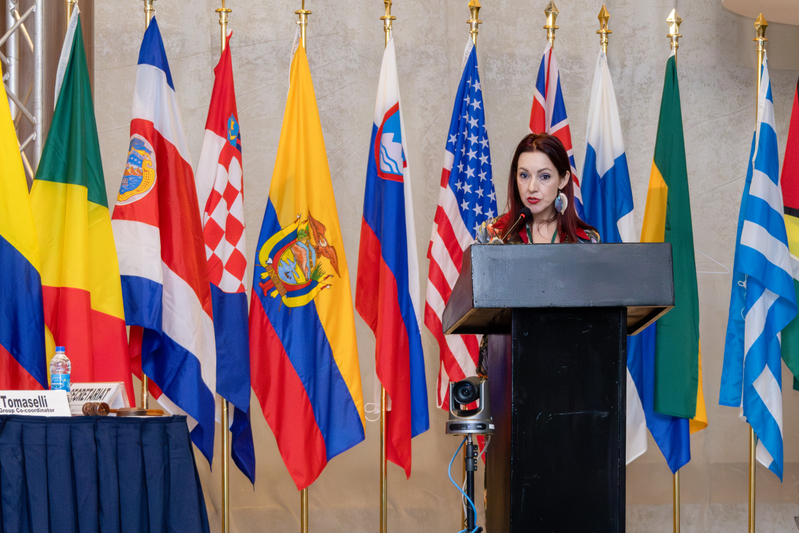
Congo Basin
Interholco, a Swiss company supplying African logs and lumber, reported progress in sustainable forest management in the Republic of Congo, where it manages over 1 million hectares under long-term concessions. Harvesting is limited to less than one tree per hectare every 30 years. Investments in worker training, social services and community engagement, including with 85 villages, highlight how responsible management supports livelihoods while maintaining forest integrity.
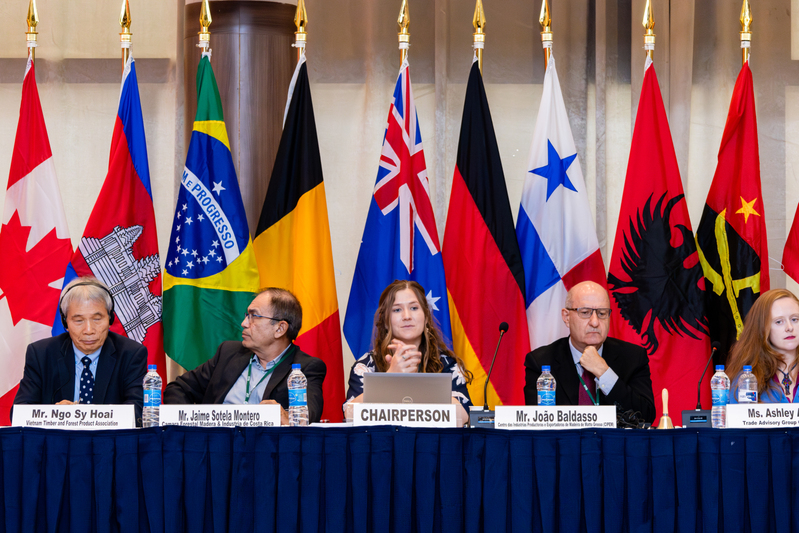
Demand for policy stability and collaborative solutions
TAG’s statement underscored mounting concerns over trade volatility, regulatory uncertainty, and escalating compliance costs. Speakers warned that these pressures risk pushing buyers toward alternative materials such as steel and concrete, which may carry higher carbon footprints.
TAG stressed the need for transparent, collaborative CITES (Convention on International Trade in Endangered Species of Wild Fauna and Flora) listing processes, clear guidance and capacity support for EUDR implementation, and trade policies that reinforce—not undermine—sustainable forest management
TAG also announced the formation of a working group to analyze causes of declining international tropical timber trade and will present recommendations to the Council.
The session noted that although more than half of the world’s forests are now under long-term management agreements, global consumer awareness of sustainability assurances remains low, underscoring the need for better communication and market recognition.
The Market Discussion underscored that tropical timber’s market share depends on maintaining strong governance, transparent supply chains and competitive industry development, while ensuring communities benefit and forests remain standing.
You may read the TAG statement here.
***********************************
Committee matters
The Joint Committee sessions included coverage of policy work and a review of completed projects overseen by ITTO’s technical committees. On the 2nd day of the Council, Joint Committee sessions reviewed agenda items 1, 2a, 2b, 3, and 6. The Secretariat reported progress on recent and planned capacity-building activities. As part of its collaboration with the UN Convention on Biological Diversity (CBD), ITTO has developed knowledge products, submitted case studies, and participated in global events. Work is also underway to renew its MoU with the CBD to strengthen access to biodiversity financing.
The Secretariat highlighted ongoing collaboration with CPF partners, ASEAN, AFoCO, and UNFF processes, and encouraged increased financial support to sustain contributions to global forest assessment initiatives.
ITTO reported on progress in several projects, including forest loss monitoring in Thailand; sustainable wood use in Indonesia and Malaysia; caoba plantations in northern Peru; and the development of a prototype of the Integrated Tropical Forest Fire Management Toolkit, among others.
______________________________________________________________________________________
More information on the Council session, including presentations, is available at: https://www.itto.int/ittc-61/presentations
Daily coverage by IISD Reporting Services: https://enb.iisd.org/ittc61-international-tropical-timber-council